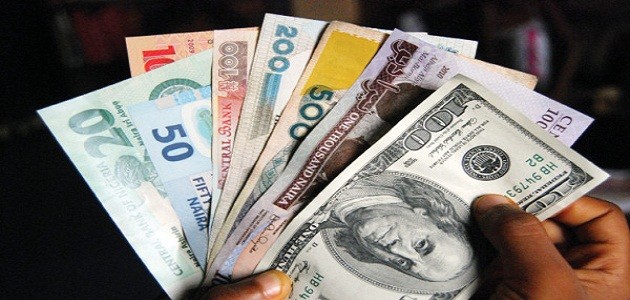The Federal Government has announced the adoption of a new flexible exchange rate policy for official transactions in a major foreign exchange policy shift.
This move which effectively suggests the third devaluation of the naira within a year will see the government adopt the NAFEX rate for its official transactions.
The Minister of Finance, Budget and National Planning, Zainab Ahmed, told journalists in Abuja that Nigeria would henceforth adopt the flexible Investors and Exporter window rate for official transactions.
She said the government would start to use the flexible rate that has until now applied to investors and exporters for government transactions too.
Data obtained by the FMDQ Securities Exchange at the end of trading in the I&E window on Monday showed that the Naira closed at N410.13 to the dollar as against N410.05 per dollar on Friday. This represented a 0.012 percent drop in value.
Participants in the market bided for the dollar at N410 and N412 respectively.
The shortage of dollars was evident as daily forex turnover dropped by 44.30 percent from $46.43 million last Friday to $25.88 million on Monday.
At the black market, Naira closed at N486 per dollar compared to N485 on Friday, according to the data from Aboki FX.
Monday’s rate at the back market represented N1 or 0.21 percent devaluation from N485, its rate since March 12.
At the end of Monday’s trading, the difference in the exchange rate between the official and unofficial market stood at N75.87.
This new policy measure by the Federal Government will come as a welcome development to the World Bank and the International Monetary Fund (IMF), who have always pushed for the abolition of multiple exchange rates and the adoption of a unified and flexible exchange rate regime.
Despite the devaluing of the naira twice since March 2020, most economic and financial analysts had called for further devaluation of the naira in order to close the gap between the official rate and the black market rate.
The adoption of the flexible-rate policy could have a positive impact on the Federal Government’s discussions with the World Bank for a $1.5 billion loan that is partly conditional on currency reforms.
A weaker naira will boost Nigeria’s revenue from oil, which has been converted at the fixed official rate. Earnings from oil exports account for about 60% of Nigeria’s revenue and about 90% of foreign-exchange earnings.
It is, however, yet to be seen if the adoption of this new policy measure will reduce the exchange rate disparity between the official rate and the black market rate.

 Health & Fitness3 days ago
Health & Fitness3 days ago
 Featured1 week ago
Featured1 week ago
 Aviation5 days ago
Aviation5 days ago
 Business1 week ago
Business1 week ago
 Aviation4 days ago
Aviation4 days ago
 Aviation4 days ago
Aviation4 days ago
 News7 days ago
News7 days ago
 Business1 week ago
Business1 week ago

